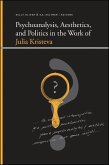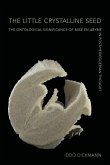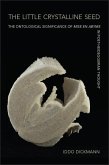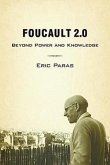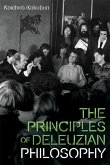The Philosophy of Julia Kristeva
Herausgeber: Beardsworth, Sara G.
The Philosophy of Julia Kristeva
Herausgeber: Beardsworth, Sara G.
- Gebundenes Buch
- Merkliste
- Auf die Merkliste
- Bewerten Bewerten
- Teilen
- Produkt teilen
- Produkterinnerung
- Produkterinnerung
Internationally famous philosopher, psychoanalyst, novelist, and cultural critic Julia Kristeva shares her autobiography and also replies to thirty-six outstanding thinkers who discuss and critique her work in this newest volume in the Library of Living Philosophers.
Andere Kunden interessierten sich auch für
![Psychoanalysis, Aesthetics, and Politics in the Work of Julia Kristeva Psychoanalysis, Aesthetics, and Politics in the Work of Julia Kristeva]() Psychoanalysis, Aesthetics, and Politics in the Work of Julia Kristeva111,99 €
Psychoanalysis, Aesthetics, and Politics in the Work of Julia Kristeva111,99 €![The Little Crystalline Seed The Little Crystalline Seed]() Iddo DickmannThe Little Crystalline Seed39,99 €
Iddo DickmannThe Little Crystalline Seed39,99 €![The Little Crystalline Seed The Little Crystalline Seed]() Iddo DickmannThe Little Crystalline Seed111,99 €
Iddo DickmannThe Little Crystalline Seed111,99 €![Julia Kristeva: Psychoanalysis and Modernity Julia Kristeva: Psychoanalysis and Modernity]() Sara BeardsworthJulia Kristeva: Psychoanalysis and Modernity106,99 €
Sara BeardsworthJulia Kristeva: Psychoanalysis and Modernity106,99 €![Jacques Derrida Jacques Derrida]() Barry Stocker (ed.)Jacques Derrida63,99 €
Barry Stocker (ed.)Jacques Derrida63,99 €![Foucault 2.0: Beyond Power and Knowledge Foucault 2.0: Beyond Power and Knowledge]() Eric ParasFoucault 2.0: Beyond Power and Knowledge25,99 €
Eric ParasFoucault 2.0: Beyond Power and Knowledge25,99 €![The Principles of Deleuzian Philosophy The Principles of Deleuzian Philosophy]() Koichiro KokubunThe Principles of Deleuzian Philosophy140,99 €
Koichiro KokubunThe Principles of Deleuzian Philosophy140,99 €-
-
-
Internationally famous philosopher, psychoanalyst, novelist, and cultural critic Julia Kristeva shares her autobiography and also replies to thirty-six outstanding thinkers who discuss and critique her work in this newest volume in the Library of Living Philosophers.
Hinweis: Dieser Artikel kann nur an eine deutsche Lieferadresse ausgeliefert werden.
Hinweis: Dieser Artikel kann nur an eine deutsche Lieferadresse ausgeliefert werden.
Produktdetails
- Produktdetails
- Library of Living Philosophers Nr.36
- Verlag: Open Court
- Seitenzahl: 908
- Erscheinungstermin: 18. August 2020
- Englisch
- Abmessung: 231mm x 157mm x 56mm
- Gewicht: 1383g
- ISBN-13: 9780812694895
- ISBN-10: 0812694899
- Artikelnr.: 58343134
- Herstellerkennzeichnung
- Libri GmbH
- Europaallee 1
- 36244 Bad Hersfeld
- 06621 890
- Library of Living Philosophers Nr.36
- Verlag: Open Court
- Seitenzahl: 908
- Erscheinungstermin: 18. August 2020
- Englisch
- Abmessung: 231mm x 157mm x 56mm
- Gewicht: 1383g
- ISBN-13: 9780812694895
- ISBN-10: 0812694899
- Artikelnr.: 58343134
- Herstellerkennzeichnung
- Libri GmbH
- Europaallee 1
- 36244 Bad Hersfeld
- 06621 890
Sara G. Beardsworth is Associate Professor and Editor of the Library of Living Philosophers, Department of Philosophy, Southern Illinois University at Carbondale. She is the author of Julia Kristeva: Psychoanalysis and Modernity and co-editor of The Philosophy of Umberto Eco.
TABLE OF CONTENTS
Frontispiece
General Introduction to the Library of Living Philosophers
Founder's General Introduction to the Library of Living Philosophers
Advisory Board
Preface
PART ONE: Intellectual Autobiography of Julia Kristeva
Sample of Kristeva's Handwriting
Intellectual Autobiography of Julia Kristeva: Je me voyage, A Journey
Across Borders and Through Identities
PART TWO: DESCRIPTIVE AND CRITICAL ESSAYS ON THE PHILOSOPHY OF JULIA
KRISTEVA WITH REPLIES
I. Language and Semiotics
1. Dominique Ducard: The Semiotic Chora and the Inner Life of Language
2. John Lechte: Language, Literature, and the Founding Murder in the Work
of Julia Kristeva
3. Eléana Mylona: Julia Kristeva Between the Semiotic and the Symbolic: The
Process of Significance
Reply to Dominique Ducard, John Lechte, and Eléana Mylona
II. Theory of Literature
4. Marian Hobson: Julia Kristeva's Farewell to Philosophy
5. Miglena Nikolchina: Signifiance and Transubstantiation: The Returns of
the Avant-Garde in Kristeva's Philosophy of Literature
6. Maria Margaroni: Artaud's Madness and the Literary Obscene: Humanism and
Its Double in Julia Kristeva
7. Philippe Forest: Birth of the Novel, Yesterday and Today
Reply to Marian Hobson, Miglena Nikolchina, Maria Margaroni, and Philippe
Forest
III. Psychoanalysis
8. Bernard Brusset: Julia Kristeva: Original and Innovative Contributions
at The Core of Psychoanalytic Theory
9. Jean-Louis Baldacci: Abjection, Reliance, and Sublimation
10. Jean-François Rabain: Julia Kristeva, Reader of Aragon
Reply to Bernard Brusset, Jean-Louis Baldacci, and Jean-François Rabain
IV. Art and Aesthetics
11. Anish Kapoor: Dear Julia
12. Elaine P. Miller: Julia Kristeva on the Severed Head and Other Maternal
"Capital Visions"
13. Carin Franzén: An Antidote to the Crisis of Contemporary Culture:
Rereading Kristeva on Duras
14. Françoise Coblence: Aesthetics According to Julia Kristeva
Reply to Anish Kapoor, Elaine P. Miller, Carin Franzén, and Françoise
Coblence
V. Philosophy in the Novels
15. David Uhrig: No Present Apart
16. Pierre-Louis Fort: Julia Kristeva and the Detective Novel: Fiction and
Metaphysics
Reply to David Uhrig and Pierre-Louis Fort
VI. Melancholy, Love, and the Sacred
17. Edward S. Casey: Depression: Heading Down and Out
18. Alina Feld: Melancholia: Passing Through and Beyond
19. Michal Ben-Naftali: A Baroque Reading of Tales of Love
20. Keren Mock: Language and Sacredness in the Quest for Subjectivity
Reply to Edward S. Casey, Alina N. Feld, Michal Ben-Naftali, and Keren Mock
VII. Desire, Knowledge, and Belief
21. Robert Harvey: Of Incredibility in the Need to Believe: A Philosophical
Exploration
22. Alain Delaye: The Need to Believe and the Desire to Know
Reply to Robert Harvey and Alain Delaye
VIII. Theory of Revolt
23. Emilia Angelova: Abjection and the Maternal Semiotic in Kristeva's
Intimate Revolt
24. Sarah K. Hansen: Intimate Revolt at the Margins of Community and the
Hope of Postcoloniality
25. Daniel Cohn-Bendit: Hannah Arendt Prize Speech 2006
Reply to Emilia Angelova, Sarah K. Hansen, and Daniel Cohn-Bendit
IX. Maternity and Maternal Reliance
26. Rosemary Balsam: The Controversial Nature of Kristeva's "Maternal
Reliance"
27. Rachel Boué-Widawsky: Maternal Eroticism and the Journey of a Concept
in Kristeva's Work
28. Fanny Söderbäck: Maternal Enigmas: Kristeva and the Paradoxes of
Motherhood
Reply to Rosemary Balsam, Rachel Boué-Widawsky, and Fanny Söderbäck
X. Philosophy of Public Health
29. Charles Gardou: The "Intimate Face" of a Common Thought and Action
30. Eivind Engebretsen: Evidence-Based Medicine and the Irreducible
Singularity of Being: Kristeva's Contribution to the Medical Humanities
31. Marie-Rose Moro: The Polyglot Imaginary, a Poetics, and a Clinic
32. Jean Vanier: "Their Look Pierces Our Shadows"
Reply to Charles Gardou, Eivind Engebretsen, Marie-Rose Moro, and Jean
Vanier
XI. Ethics and Politics
33. Cecilia Sjöholm: From Denial to Forgiveness: Kristeva, Arendt, and
Radicalization
34. Ewa Ziarek: A Materialist Ethics of Psychoanalysis? Reflections on
Matter, Forgiveness, and Vulnerability
35. Noëlle McAfee: Kristeva's Latent Political Theory
36. Kelly Oliver: The Democracy of Proximity and Kristeva's New Humanism
Reply to Cecilia Sjöholm, Ewa Ziarek, Noëlle McAfee, and Kelly Oliver
PART THREE: Bibliography of the Writings of Julia Kristeva
Index
Frontispiece
General Introduction to the Library of Living Philosophers
Founder's General Introduction to the Library of Living Philosophers
Advisory Board
Preface
PART ONE: Intellectual Autobiography of Julia Kristeva
Sample of Kristeva's Handwriting
Intellectual Autobiography of Julia Kristeva: Je me voyage, A Journey
Across Borders and Through Identities
PART TWO: DESCRIPTIVE AND CRITICAL ESSAYS ON THE PHILOSOPHY OF JULIA
KRISTEVA WITH REPLIES
I. Language and Semiotics
1. Dominique Ducard: The Semiotic Chora and the Inner Life of Language
2. John Lechte: Language, Literature, and the Founding Murder in the Work
of Julia Kristeva
3. Eléana Mylona: Julia Kristeva Between the Semiotic and the Symbolic: The
Process of Significance
Reply to Dominique Ducard, John Lechte, and Eléana Mylona
II. Theory of Literature
4. Marian Hobson: Julia Kristeva's Farewell to Philosophy
5. Miglena Nikolchina: Signifiance and Transubstantiation: The Returns of
the Avant-Garde in Kristeva's Philosophy of Literature
6. Maria Margaroni: Artaud's Madness and the Literary Obscene: Humanism and
Its Double in Julia Kristeva
7. Philippe Forest: Birth of the Novel, Yesterday and Today
Reply to Marian Hobson, Miglena Nikolchina, Maria Margaroni, and Philippe
Forest
III. Psychoanalysis
8. Bernard Brusset: Julia Kristeva: Original and Innovative Contributions
at The Core of Psychoanalytic Theory
9. Jean-Louis Baldacci: Abjection, Reliance, and Sublimation
10. Jean-François Rabain: Julia Kristeva, Reader of Aragon
Reply to Bernard Brusset, Jean-Louis Baldacci, and Jean-François Rabain
IV. Art and Aesthetics
11. Anish Kapoor: Dear Julia
12. Elaine P. Miller: Julia Kristeva on the Severed Head and Other Maternal
"Capital Visions"
13. Carin Franzén: An Antidote to the Crisis of Contemporary Culture:
Rereading Kristeva on Duras
14. Françoise Coblence: Aesthetics According to Julia Kristeva
Reply to Anish Kapoor, Elaine P. Miller, Carin Franzén, and Françoise
Coblence
V. Philosophy in the Novels
15. David Uhrig: No Present Apart
16. Pierre-Louis Fort: Julia Kristeva and the Detective Novel: Fiction and
Metaphysics
Reply to David Uhrig and Pierre-Louis Fort
VI. Melancholy, Love, and the Sacred
17. Edward S. Casey: Depression: Heading Down and Out
18. Alina Feld: Melancholia: Passing Through and Beyond
19. Michal Ben-Naftali: A Baroque Reading of Tales of Love
20. Keren Mock: Language and Sacredness in the Quest for Subjectivity
Reply to Edward S. Casey, Alina N. Feld, Michal Ben-Naftali, and Keren Mock
VII. Desire, Knowledge, and Belief
21. Robert Harvey: Of Incredibility in the Need to Believe: A Philosophical
Exploration
22. Alain Delaye: The Need to Believe and the Desire to Know
Reply to Robert Harvey and Alain Delaye
VIII. Theory of Revolt
23. Emilia Angelova: Abjection and the Maternal Semiotic in Kristeva's
Intimate Revolt
24. Sarah K. Hansen: Intimate Revolt at the Margins of Community and the
Hope of Postcoloniality
25. Daniel Cohn-Bendit: Hannah Arendt Prize Speech 2006
Reply to Emilia Angelova, Sarah K. Hansen, and Daniel Cohn-Bendit
IX. Maternity and Maternal Reliance
26. Rosemary Balsam: The Controversial Nature of Kristeva's "Maternal
Reliance"
27. Rachel Boué-Widawsky: Maternal Eroticism and the Journey of a Concept
in Kristeva's Work
28. Fanny Söderbäck: Maternal Enigmas: Kristeva and the Paradoxes of
Motherhood
Reply to Rosemary Balsam, Rachel Boué-Widawsky, and Fanny Söderbäck
X. Philosophy of Public Health
29. Charles Gardou: The "Intimate Face" of a Common Thought and Action
30. Eivind Engebretsen: Evidence-Based Medicine and the Irreducible
Singularity of Being: Kristeva's Contribution to the Medical Humanities
31. Marie-Rose Moro: The Polyglot Imaginary, a Poetics, and a Clinic
32. Jean Vanier: "Their Look Pierces Our Shadows"
Reply to Charles Gardou, Eivind Engebretsen, Marie-Rose Moro, and Jean
Vanier
XI. Ethics and Politics
33. Cecilia Sjöholm: From Denial to Forgiveness: Kristeva, Arendt, and
Radicalization
34. Ewa Ziarek: A Materialist Ethics of Psychoanalysis? Reflections on
Matter, Forgiveness, and Vulnerability
35. Noëlle McAfee: Kristeva's Latent Political Theory
36. Kelly Oliver: The Democracy of Proximity and Kristeva's New Humanism
Reply to Cecilia Sjöholm, Ewa Ziarek, Noëlle McAfee, and Kelly Oliver
PART THREE: Bibliography of the Writings of Julia Kristeva
Index
TABLE OF CONTENTS
Frontispiece
General Introduction to the Library of Living Philosophers
Founder's General Introduction to the Library of Living Philosophers
Advisory Board
Preface
PART ONE: Intellectual Autobiography of Julia Kristeva
Sample of Kristeva's Handwriting
Intellectual Autobiography of Julia Kristeva: Je me voyage, A Journey
Across Borders and Through Identities
PART TWO: DESCRIPTIVE AND CRITICAL ESSAYS ON THE PHILOSOPHY OF JULIA
KRISTEVA WITH REPLIES
I. Language and Semiotics
1. Dominique Ducard: The Semiotic Chora and the Inner Life of Language
2. John Lechte: Language, Literature, and the Founding Murder in the Work
of Julia Kristeva
3. Eléana Mylona: Julia Kristeva Between the Semiotic and the Symbolic: The
Process of Significance
Reply to Dominique Ducard, John Lechte, and Eléana Mylona
II. Theory of Literature
4. Marian Hobson: Julia Kristeva's Farewell to Philosophy
5. Miglena Nikolchina: Signifiance and Transubstantiation: The Returns of
the Avant-Garde in Kristeva's Philosophy of Literature
6. Maria Margaroni: Artaud's Madness and the Literary Obscene: Humanism and
Its Double in Julia Kristeva
7. Philippe Forest: Birth of the Novel, Yesterday and Today
Reply to Marian Hobson, Miglena Nikolchina, Maria Margaroni, and Philippe
Forest
III. Psychoanalysis
8. Bernard Brusset: Julia Kristeva: Original and Innovative Contributions
at The Core of Psychoanalytic Theory
9. Jean-Louis Baldacci: Abjection, Reliance, and Sublimation
10. Jean-François Rabain: Julia Kristeva, Reader of Aragon
Reply to Bernard Brusset, Jean-Louis Baldacci, and Jean-François Rabain
IV. Art and Aesthetics
11. Anish Kapoor: Dear Julia
12. Elaine P. Miller: Julia Kristeva on the Severed Head and Other Maternal
"Capital Visions"
13. Carin Franzén: An Antidote to the Crisis of Contemporary Culture:
Rereading Kristeva on Duras
14. Françoise Coblence: Aesthetics According to Julia Kristeva
Reply to Anish Kapoor, Elaine P. Miller, Carin Franzén, and Françoise
Coblence
V. Philosophy in the Novels
15. David Uhrig: No Present Apart
16. Pierre-Louis Fort: Julia Kristeva and the Detective Novel: Fiction and
Metaphysics
Reply to David Uhrig and Pierre-Louis Fort
VI. Melancholy, Love, and the Sacred
17. Edward S. Casey: Depression: Heading Down and Out
18. Alina Feld: Melancholia: Passing Through and Beyond
19. Michal Ben-Naftali: A Baroque Reading of Tales of Love
20. Keren Mock: Language and Sacredness in the Quest for Subjectivity
Reply to Edward S. Casey, Alina N. Feld, Michal Ben-Naftali, and Keren Mock
VII. Desire, Knowledge, and Belief
21. Robert Harvey: Of Incredibility in the Need to Believe: A Philosophical
Exploration
22. Alain Delaye: The Need to Believe and the Desire to Know
Reply to Robert Harvey and Alain Delaye
VIII. Theory of Revolt
23. Emilia Angelova: Abjection and the Maternal Semiotic in Kristeva's
Intimate Revolt
24. Sarah K. Hansen: Intimate Revolt at the Margins of Community and the
Hope of Postcoloniality
25. Daniel Cohn-Bendit: Hannah Arendt Prize Speech 2006
Reply to Emilia Angelova, Sarah K. Hansen, and Daniel Cohn-Bendit
IX. Maternity and Maternal Reliance
26. Rosemary Balsam: The Controversial Nature of Kristeva's "Maternal
Reliance"
27. Rachel Boué-Widawsky: Maternal Eroticism and the Journey of a Concept
in Kristeva's Work
28. Fanny Söderbäck: Maternal Enigmas: Kristeva and the Paradoxes of
Motherhood
Reply to Rosemary Balsam, Rachel Boué-Widawsky, and Fanny Söderbäck
X. Philosophy of Public Health
29. Charles Gardou: The "Intimate Face" of a Common Thought and Action
30. Eivind Engebretsen: Evidence-Based Medicine and the Irreducible
Singularity of Being: Kristeva's Contribution to the Medical Humanities
31. Marie-Rose Moro: The Polyglot Imaginary, a Poetics, and a Clinic
32. Jean Vanier: "Their Look Pierces Our Shadows"
Reply to Charles Gardou, Eivind Engebretsen, Marie-Rose Moro, and Jean
Vanier
XI. Ethics and Politics
33. Cecilia Sjöholm: From Denial to Forgiveness: Kristeva, Arendt, and
Radicalization
34. Ewa Ziarek: A Materialist Ethics of Psychoanalysis? Reflections on
Matter, Forgiveness, and Vulnerability
35. Noëlle McAfee: Kristeva's Latent Political Theory
36. Kelly Oliver: The Democracy of Proximity and Kristeva's New Humanism
Reply to Cecilia Sjöholm, Ewa Ziarek, Noëlle McAfee, and Kelly Oliver
PART THREE: Bibliography of the Writings of Julia Kristeva
Index
Frontispiece
General Introduction to the Library of Living Philosophers
Founder's General Introduction to the Library of Living Philosophers
Advisory Board
Preface
PART ONE: Intellectual Autobiography of Julia Kristeva
Sample of Kristeva's Handwriting
Intellectual Autobiography of Julia Kristeva: Je me voyage, A Journey
Across Borders and Through Identities
PART TWO: DESCRIPTIVE AND CRITICAL ESSAYS ON THE PHILOSOPHY OF JULIA
KRISTEVA WITH REPLIES
I. Language and Semiotics
1. Dominique Ducard: The Semiotic Chora and the Inner Life of Language
2. John Lechte: Language, Literature, and the Founding Murder in the Work
of Julia Kristeva
3. Eléana Mylona: Julia Kristeva Between the Semiotic and the Symbolic: The
Process of Significance
Reply to Dominique Ducard, John Lechte, and Eléana Mylona
II. Theory of Literature
4. Marian Hobson: Julia Kristeva's Farewell to Philosophy
5. Miglena Nikolchina: Signifiance and Transubstantiation: The Returns of
the Avant-Garde in Kristeva's Philosophy of Literature
6. Maria Margaroni: Artaud's Madness and the Literary Obscene: Humanism and
Its Double in Julia Kristeva
7. Philippe Forest: Birth of the Novel, Yesterday and Today
Reply to Marian Hobson, Miglena Nikolchina, Maria Margaroni, and Philippe
Forest
III. Psychoanalysis
8. Bernard Brusset: Julia Kristeva: Original and Innovative Contributions
at The Core of Psychoanalytic Theory
9. Jean-Louis Baldacci: Abjection, Reliance, and Sublimation
10. Jean-François Rabain: Julia Kristeva, Reader of Aragon
Reply to Bernard Brusset, Jean-Louis Baldacci, and Jean-François Rabain
IV. Art and Aesthetics
11. Anish Kapoor: Dear Julia
12. Elaine P. Miller: Julia Kristeva on the Severed Head and Other Maternal
"Capital Visions"
13. Carin Franzén: An Antidote to the Crisis of Contemporary Culture:
Rereading Kristeva on Duras
14. Françoise Coblence: Aesthetics According to Julia Kristeva
Reply to Anish Kapoor, Elaine P. Miller, Carin Franzén, and Françoise
Coblence
V. Philosophy in the Novels
15. David Uhrig: No Present Apart
16. Pierre-Louis Fort: Julia Kristeva and the Detective Novel: Fiction and
Metaphysics
Reply to David Uhrig and Pierre-Louis Fort
VI. Melancholy, Love, and the Sacred
17. Edward S. Casey: Depression: Heading Down and Out
18. Alina Feld: Melancholia: Passing Through and Beyond
19. Michal Ben-Naftali: A Baroque Reading of Tales of Love
20. Keren Mock: Language and Sacredness in the Quest for Subjectivity
Reply to Edward S. Casey, Alina N. Feld, Michal Ben-Naftali, and Keren Mock
VII. Desire, Knowledge, and Belief
21. Robert Harvey: Of Incredibility in the Need to Believe: A Philosophical
Exploration
22. Alain Delaye: The Need to Believe and the Desire to Know
Reply to Robert Harvey and Alain Delaye
VIII. Theory of Revolt
23. Emilia Angelova: Abjection and the Maternal Semiotic in Kristeva's
Intimate Revolt
24. Sarah K. Hansen: Intimate Revolt at the Margins of Community and the
Hope of Postcoloniality
25. Daniel Cohn-Bendit: Hannah Arendt Prize Speech 2006
Reply to Emilia Angelova, Sarah K. Hansen, and Daniel Cohn-Bendit
IX. Maternity and Maternal Reliance
26. Rosemary Balsam: The Controversial Nature of Kristeva's "Maternal
Reliance"
27. Rachel Boué-Widawsky: Maternal Eroticism and the Journey of a Concept
in Kristeva's Work
28. Fanny Söderbäck: Maternal Enigmas: Kristeva and the Paradoxes of
Motherhood
Reply to Rosemary Balsam, Rachel Boué-Widawsky, and Fanny Söderbäck
X. Philosophy of Public Health
29. Charles Gardou: The "Intimate Face" of a Common Thought and Action
30. Eivind Engebretsen: Evidence-Based Medicine and the Irreducible
Singularity of Being: Kristeva's Contribution to the Medical Humanities
31. Marie-Rose Moro: The Polyglot Imaginary, a Poetics, and a Clinic
32. Jean Vanier: "Their Look Pierces Our Shadows"
Reply to Charles Gardou, Eivind Engebretsen, Marie-Rose Moro, and Jean
Vanier
XI. Ethics and Politics
33. Cecilia Sjöholm: From Denial to Forgiveness: Kristeva, Arendt, and
Radicalization
34. Ewa Ziarek: A Materialist Ethics of Psychoanalysis? Reflections on
Matter, Forgiveness, and Vulnerability
35. Noëlle McAfee: Kristeva's Latent Political Theory
36. Kelly Oliver: The Democracy of Proximity and Kristeva's New Humanism
Reply to Cecilia Sjöholm, Ewa Ziarek, Noëlle McAfee, and Kelly Oliver
PART THREE: Bibliography of the Writings of Julia Kristeva
Index


